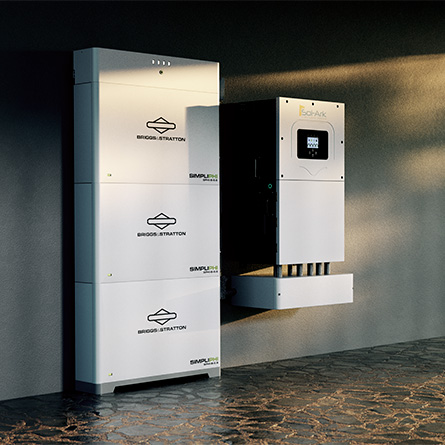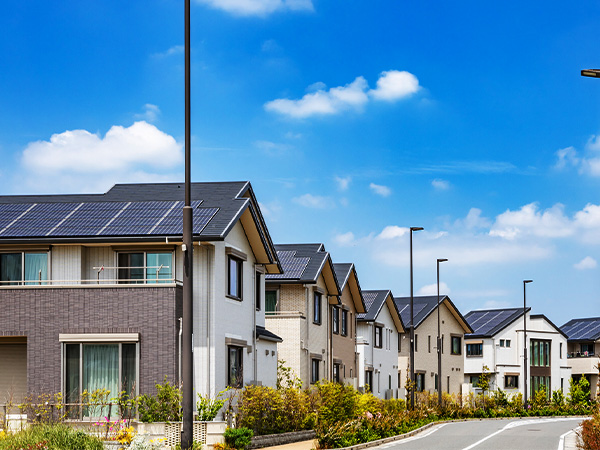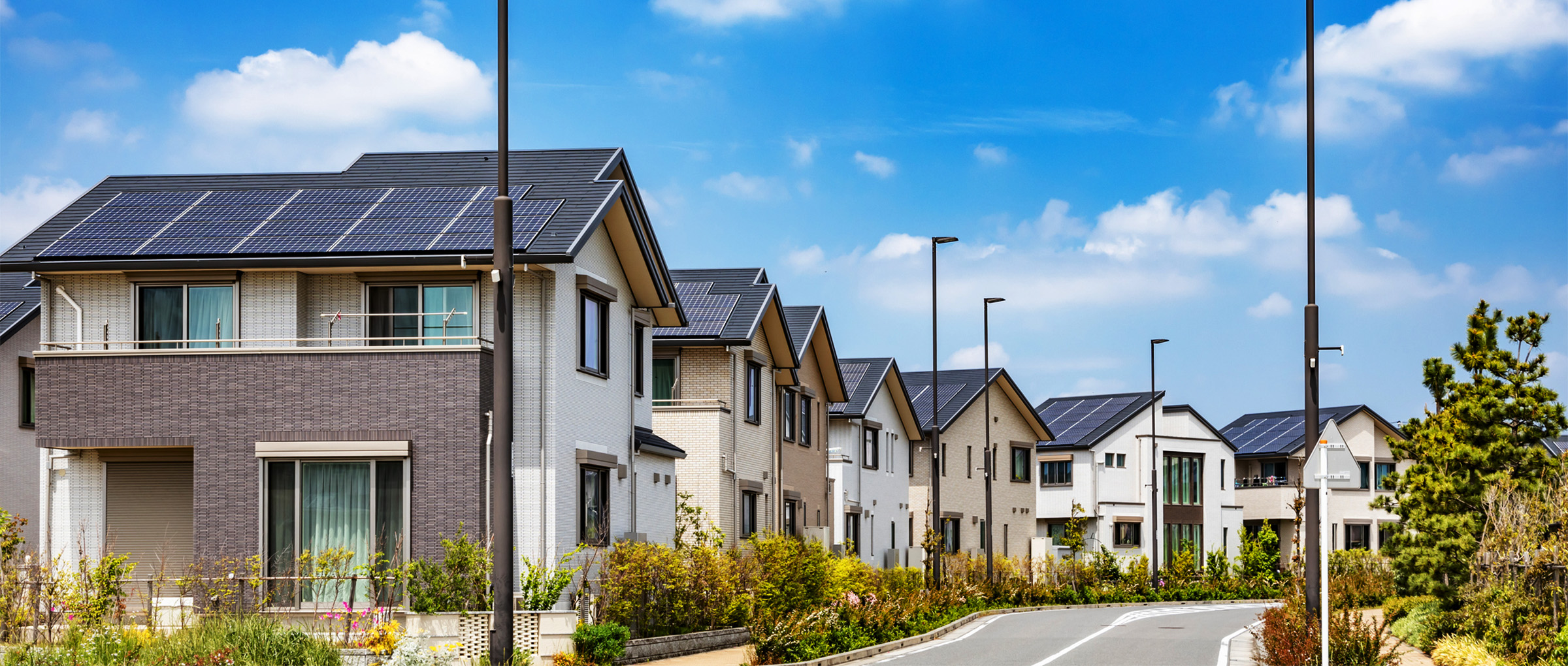The traditional electricity transmission from utility producers to our residences is presently marked by inefficient transmission, resulting in less than 40% of the electricity generated at the factory reaching our homes. This means we are consuming 2.5 times the amount of non-renewable resources, such as coal, than is needed to generate adequate energy for our households. If off-grid homes could generate electricity on-site for immediate consumption, they could significantly reduce this waste and the losses incurred during transportation.
Going off-grid in an urban setting can be exciting, empowering, and challenging. Before deciding on an official plan to unplug from your utility company, there are many considerations. There are many reasons to go off-grid: energy savings, lowering your carbon footprint, or ensuring your own energy when the grid goes down. Whatever the case, many emissions come from electricity generation and consumption. We will focus on the portion of going off-grid that relates to energy.
By transitioning to off-grid power solutions such as solar panels, wind turbines and energy-efficient technologies, urban dwellers can reduce their reliance on fossil fuels and contribute to a lower carbon footprint. This benefits the environment and leads to potential cost savings in the long run. Here are some considerations to make while planning your urban off-grid journey.
Assessing your energy needs
To optimize your off-grid lifestyle further, consider implementing various energy efficiency measures. Proper home insulation is one of the most effective ways to reduce energy consumption. Well-insulated homes require less heating in the winter and less cooling in the summer. Switching to energy-efficient LED lighting can significantly reduce electricity consumption while investing in Energy Star-rated appliances can help you conserve energy without sacrificing functionality. Smart thermostats offer the advantage of optimizing your heating and cooling systems based on your usage patterns. Additionally, scheduling energy-intensive tasks like laundry and dishwashing during off-peak hours can maximize the efficiency of your off-grid system.
By thoroughly assessing your energy needs, identifying energy-efficient essential appliances and implementing energy efficiency measures, you'll be better prepared to design an off-grid power system that meets your requirements while minimizing waste and environmental impact. This procurement step is crucial in planning and ensuring a successful transition to an off-grid lifestyle in an urban setting.

The traditional electricity transmission from utility producers to our residences is presently marked by inefficient transmission, resulting in less than 40% of the electricity generated at the factory reaching our homes. This means we are consuming 2.5 times the amount of non-renewable resources, such as coal than is needed to generate adequate energy for our households. If off-grid homes could generate electricity on-site for immediate consumption, they could significantly reduce this waste and the losses incurred during transportation.
Going off-grid in an urban setting can be exciting, empowering, and challenging. Before deciding on an official plan to unplug from your utility company, there are many considerations. There are many reasons to go off-grid: energy savings, lowering your carbon footprint, or ensuring your own energy when the grid goes down. Whatever the case, many emissions come from electricity generation and consumption. We will focus on the portion of going off-grid that relates to energy.
By transitioning to off-grid power solutions such as solar panels, wind turbines and energy-efficient technologies, urban dwellers can reduce their reliance on fossil fuels and contribute to a lower carbon footprint. This benefits the environment and leads to potential cost savings in the long run. Here are some considerations to make while planning your urban off-grid journey.
Assessing your energy needs
To optimize your off-grid lifestyle further, consider implementing various energy efficiency measures. Proper home insulation is one of the most effective ways to reduce energy consumption. Well-insulated homes require less heating in the winter and less cooling in the summer. Switching to energy-efficient LED lighting can significantly reduce electricity consumption while investing in Energy Star-rated appliances can help you conserve energy without sacrificing functionality. Smart thermostats offer the advantage of optimizing your heating and cooling systems based on your usage patterns. Additionally, scheduling energy-intensive tasks like laundry and dishwashing during off-peak hours can maximize the efficiency of your off-grid system.
By thoroughly assessing your energy needs, identifying energy-efficient essential appliances and implementing energy efficiency measures, you'll be better prepared to design an off-grid power system that meets your requirements while minimizing waste and environmental impact. This procurement step is crucial in planning and ensuring a successful transition to an off-grid lifestyle in an urban setting.
Do you want to offset costs with net metering?
The cost of installing solar or battery is often offset with net metering income, incentives, and rebates, including grid-tied stipulations. For example, battery storage rebates from states and utilities often require the battery to be grid-tied to receive the incentive. When going off-grid, you'll have to consider this relinquishing of incentives.
Transitioning to an off-grid power system often comes with higher initial costs than expected. It's typically only financially justifiable if the cost of bringing in utility power exceeds a significant amount, usually more than $50,000. While off-grid living essentially eliminates your utility bill, it does not mean you'll never have to pay for energy again. Ongoing costs are associated with off-grid living, including fuel for backup generators and battery replacement expenses. Maintenance and equipment replacements can further offset any potential savings.
Consider selling energy back rather than drawing power from the grid, depending on your location. This is possible through net metering, where you can sell your excess energy back to the grid. When you generate surplus energy while off the grid, you can store it in your backup battery or stabilize it by contributing excess power.
What happens when your power source isn't enough?
Whether you're powering up with solar, wind, or generators off-grid, you'll need to consider what you'll do when your core power source, for example, solar, isn't performing for some time. Let's say there is a bad storm, and you're not generating much solar power. You will need to have a backup plan. You can always add more solar power or battery storage to compensate for your needs. But it's important to consider those factors and incorporate them into your energy plan.
What happens if you need to fix an issue with your off-grid solar power system?
If you encounter an off-grid solar power system issue, you can rely on your backup storage to provide power during any downtime. This is crucial since using power from the main grid isn't an option in an off-grid setup. It's important to ensure that your solar system is reliable for daily use and that your battery can store enough energy for periods when it is not functioning properly and needs repairs.
What issues could arise with your utility company when disconnecting from the grid?
Disconnecting your home from the grid may be illegal in your area, and it could potentially invalidate your home's certificate of occupancy. Legal restrictions and regulations vary by location, so it's crucial to research local laws and consult with authorities to determine the legality of disconnecting from the utility.
Consider that disconnecting from the grid means relinquishing the convenience that utility power offers. Off-grid living entails being your own electricity provider, which can be empowering and demanding. If you exceed the power stored in your batteries, you will be without power until you can recharge them through your solar panels or a supplemental generator. Unlike grid-connected homes, where you can draw power instantly, off-grid living requires careful energy management.
Going off-grid necessitates a significant shift in energy use habits. Every appliance and electrical device used matters, and you'll need to make conscious choices about what you can operate based on your system's status and battery recharge capacity. Even leaving your off-grid home unattended for an extended period requires meticulous planning to avoid power shortages and food spoilage.
What are the key considerations when taking your urban energy off-grid?
Choosing the right off-grid power system
Once you've assessed your energy needs and considered efficiency measures, the next crucial step in your off-grid journey is selecting the appropriate power system to meet those needs. The choice of off-grid power system will largely depend on your location, budget, and specific energy requirements. Here are some key considerations for different components of off-grid power systems.
Solar panel installation and maintenance
Solar panels are a popular choice for urban off-grid living because of their reliability. When selecting solar panels, consider the type and efficiency of the panels that best suit your needs. Monocrystalline and polycrystalline panels are standard options, with monocrystalline being more efficient but slightly more expensive. Ensure proper installation by hiring qualified professionals, as the angle and direction of panels significantly affect energy generation. Warranties and regular maintenance, such as cleaning panels and checking for damage, are essential to maximize their lifespan and efficiency.
Are wind turbines feasible in urban areas?
While wind turbines can be a viable off-grid power source, their feasibility in urban areas may be limited due to space and zoning restrictions. If you have the necessary space and local regulations permit, consider the potential benefits of wind turbines, especially in areas with consistent wind patterns. Proper installation and regular maintenance are crucial to ensuring safety and efficiency. Assess local wind conditions and talk to a wind power expert to determine whether wind is a practical addition to your off-grid system. Wind turbines in conjunction with solar are some of the most effective off-grid solutions as often when the sun isn’t shining the wind is blowing.
Battery storage system types and capacity requirements
Battery storage is essential for off-grid systems to store excess energy generated during sunny or windy periods for use during periods of low energy production. Various battery types are available, each with many pros and cons. Lithium-iron Phosphate (LFP) batteries score the highest in cost, safety and durability. Calculate your battery capacity carefully to ensure an uninterrupted power supply when your renewable energy source is not producing power. Contact a pro and see the LFP line of batteries proudly manufactured by Briggs & Stratton Energy Solutions.
Backup generators
While off-grid systems aim to be self-sufficient, backup generators can provide added peace of mind during extended periods of low energy production or emergencies. Determine the appropriate size and type of backup generator to meet your needs. Propane, diesel, and gasoline generators are common choices. Ensure you understand how to safely operate and maintain the generator and use it sparingly to conserve fuel and reduce environmental impact. Briggs & Stratton Backup Generators are top-performing and reliable. Check out our line of backup generators to add to your off-grid system.
Selecting the right off-grid power system is a critical decision that involves evaluating your location, energy requirements and budget constraints. It's advisable to consult with renewable energy experts or professionals to guide you in making the most suitable choices for your unique urban off-grid living situation. When properly chosen and maintained, an off-grid power system can provide reliable and sustainable energy for years.
Transitioning to an off-grid lifestyle in an urban setting is a significant and life-altering decision. While it offers the potential for increased self-sufficiency and reduced environmental impact, it demands careful planning, thorough research and a commitment to responsible energy management. Whether driven by sustainability goals, energy savings, or the desire for greater control over power, urban off-grid living is a path that can be rewarding when approached with diligence and a clear understanding of the challenges involved.
Visit the Briggs & Stratton Residential Applications page to talk to an expert and learn more.

Ready to experience true energy independence?
Request a consultation with a Briggs & Stratton dealer or installer near you by clicking the button below.



